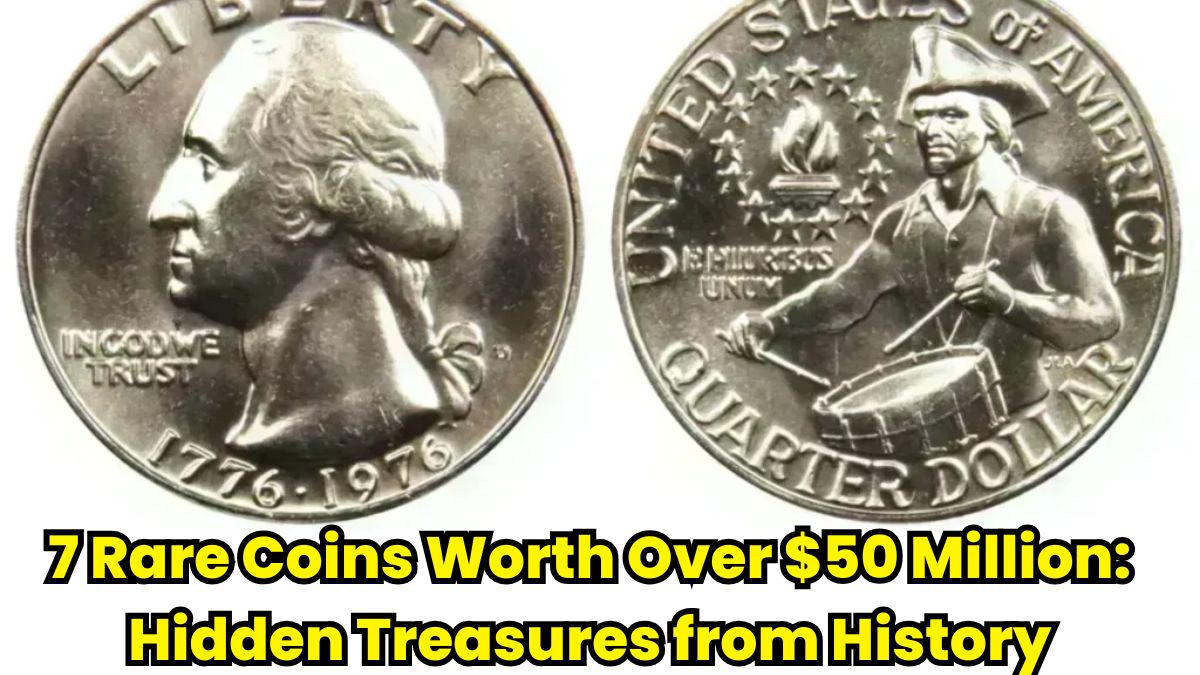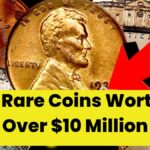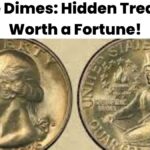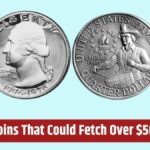Hidden Treasures from History:In the fascinating world of numismatics, certain coins stand out not just for their monetary value, but for their incredible historical significance and rarity. Let’s explore seven extraordinary coins that have each reached or exceeded the remarkable value of $50 million.
The Birth of American Currency
The story of American coinage begins with the 1794 Flowing Hair Dollar, a coin that represents the foundation of U.S. currency. As the first dollar coin produced by the federal mint, it features an elegant portrait of Liberty with flowing hair on one side and an eagle on the reverse. With only 1,750 pieces originally minted, this coin’s value has skyrocketed from its $10 million sale price in 2013 to an estimated worth exceeding $50 million today.
1933 Saint-Gaudens Double Eagle
Perhaps no coin has a more intriguing story than the 1933 Saint-Gaudens Double Eagle. Created during the Great Depression, these $20 gold pieces were never meant to circulate. When President Franklin D. Roosevelt took the U.S. off the gold standard, most were melted down. The few that escaped destruction have become legendary, with one piece selling for $7.5 million in 2002. Today, their value has grown exponentially, surpassing $50 million.
1913 Liberty Head
Among the most enigmatic coins is the 1913 Liberty Head Nickel. With only five known examples, these coins weren’t supposed to exist at all – they were struck unauthorized after production had officially ended. Their mysterious origins and extreme rarity have earned them the nickname “Forbidden Fruit” among collectors, with values now estimated above $50 million.
1804 Silver Dollar
Known as the “King of American Coins,” the 1804 Silver Dollar has an fascinating twist – it wasn’t actually minted in 1804. Created in the 1830s as diplomatic gifts, only 15 examples exist today. This coin’s unique history as a symbol of American diplomacy has helped drive its value well beyond $50 million.
1787 Brasher Doubloon
The Brasher Doubloon represents early American entrepreneurship and craftsmanship. Created by New York goldsmith Ephraim Brasher, these coins were among the first gold pieces minted in the United States. From its last known sale price of $7.4 million in 2011, its value has increased dramatically, now estimated over $50 million.
1343 Edward III Florin
Stepping back into medieval times, the Edward III Florin, also known as the “Double Leopard,” stands as a remarkable piece of English history. With just three known surviving examples, this gold coin from the reign of Edward III represents both artistic achievement and historical significance. Its extreme rarity has pushed its estimated value above $50 million.
2007 Canadian Gold Maple Leaf
Proving that valuable coins aren’t all ancient history, the 2007 Canadian Gold Maple Leaf stands as a monument to modern minting capabilities. Weighing an impressive 100 kilograms and crafted from 99.999% pure gold, this coin combines size, purity, and craftsmanship in unprecedented ways. While its face value is $1 million, its actual worth exceeds $50 million.
A Legacy Beyond Price
These seven coins represent more than just monetary value – they are windows into different eras, telling stories of innovation, political change, and human achievement. From the birth of American currency to medieval English kingdoms, from mysterious unauthorized mintings to modern technical achievements, each coin carries its own unique tale.
For collectors and historians alike, these pieces represent the pinnacle of numismatic treasure. Their value continues to grow not just because of their rarity or precious metal content, but because they embody pivotal moments in human history. They remind us that coins can be more than currency – they can be works of art, historical documents, and symbols of national pride all rolled into one small, yet priceless, piece of metal.
As these coins continue to appreciate in value, they stand as testament to humanity’s enduring fascination with both history and precious metals. Whether locked away in private collections or displayed in museum vaults, they continue to captivate imaginations and inspire new generations of collectors and historians.




